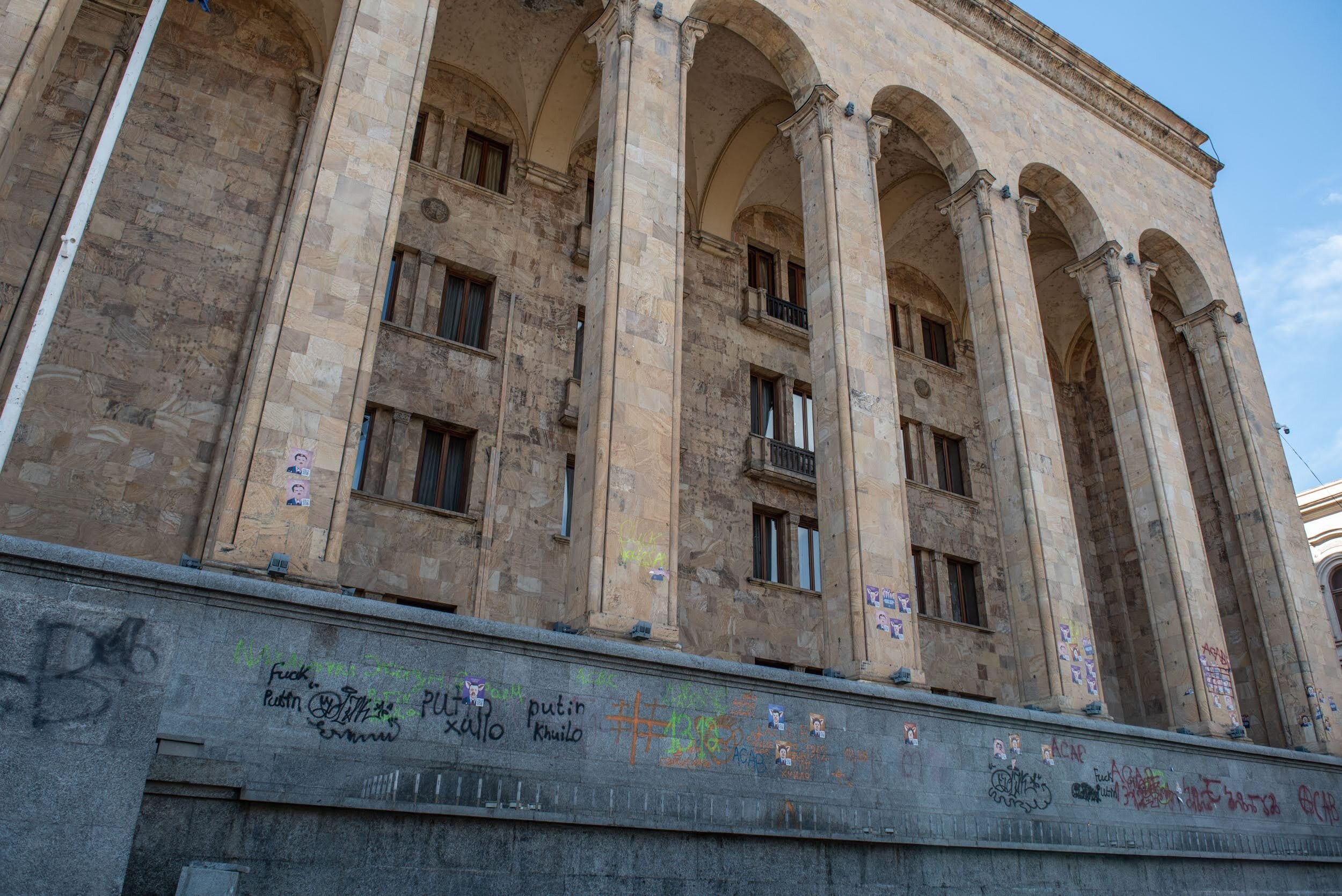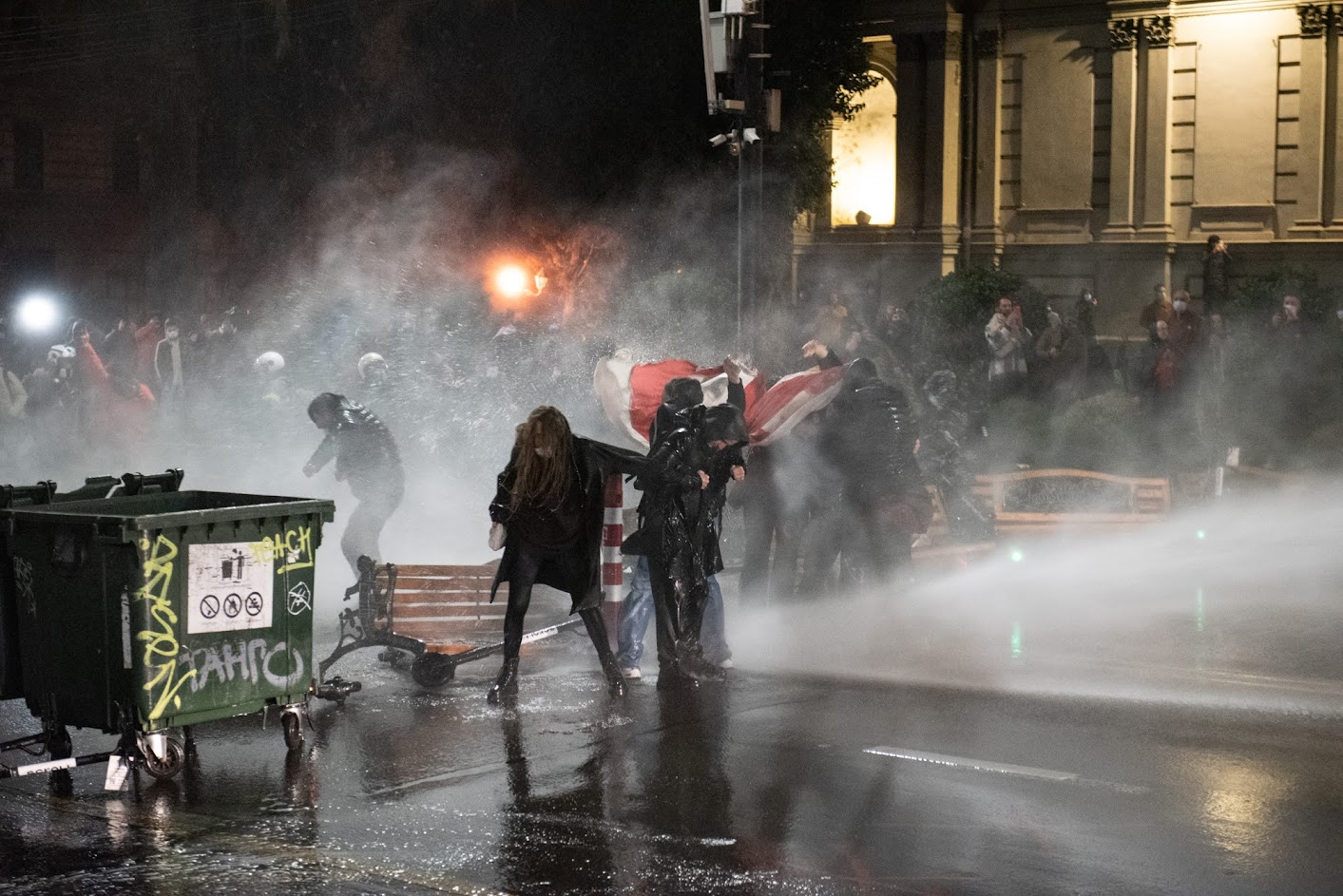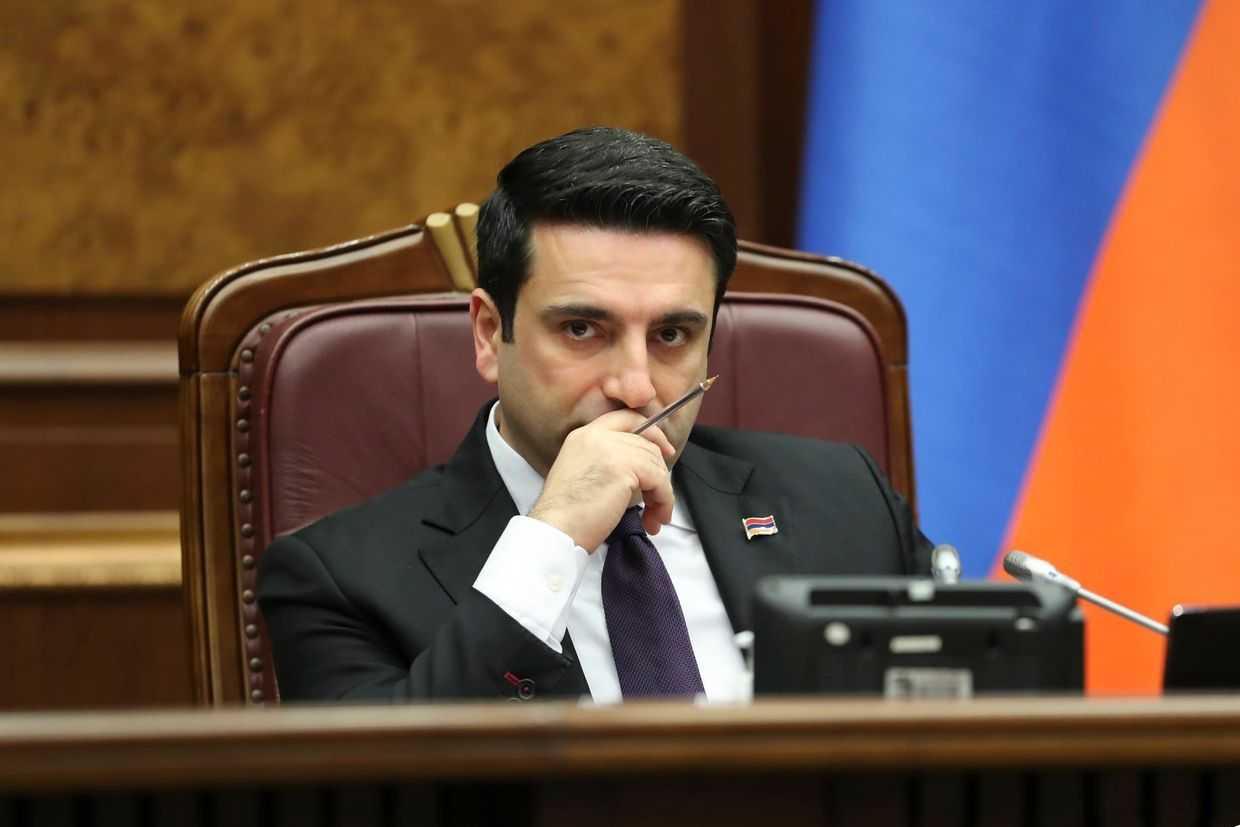
The ruling Georgian Dream party has announced they will again attempt to pass a controversial ‘foreign agent law’ targetting civil society organisations and the media after the previous attempt last year was thwarted by massive street protests.
On Wednesday Mamuka Mdinaradze, Georgian Dream’s parliamentary leader, announced at a briefing that the law would be largely unchanged from last year’s version. He said the only difference would be that the new legislation would label organisations that receive funding from overseas ‘organisations carrying out the interests of a foreign power’ instead of ‘agents of foreign influence’.
In March 2023, thousands took to the streets in two days of protests to oppose the government’s previous draft foreign agent laws. The protests at times turned violent after police deployed tear gas, pepper spray, water cannons, and sonic weapons in an attempt to disperse them. The government was forced to vote down the legislation — dubbed the ‘Russian law’ due to its similarity to legislation used to crush civil society in Russia — just days after it was introduced.

Since dropping the legislation, the ruling Georgian Dream Party has continued to escalate their rhetoric against civil society organisations, the media, and foreign donor organisations in Georgia.
Mdinaradze began his briefing by attacking civil society, stating that ‘the so-called civil sector remains the most opaque sector in Georgia’, and accusing donors to civil society organisations of ‘financing extremism’.
He stated that the draft law would obligate NGOs receiving funding from abroad to publish an annual financial report, and that the only consequences of violating the law would be ‘financial sanctions’. While similar claims were made regarding the 2023 foreign agents law, observers warned at the time that the law was likely to be used to exert pressure on civil society organisations. While the draft of the latest legislation has not yet been made public, the previous law would also have subjected organisations to undefined ‘monitoring’ by the Ministry of Justice. Media organisations warned this could include forcing journalists to reveal sources or to hand over internal communications.
Mdinaradze added that the law would be passed ‘in all three readings’ by the end of the spring session of parliament, at the end of June.
Several opposition MPs have already insisted the law would not be allowed to pass.
‘We must do everything in order to prevent Georgian Dream from moving our country backwards’, said Khatia Dekanoidze, an MP from the opposition Euro-optimists parliamentary group.
‘We all must mobilise our forces together again and confront the biggest evil — Ivanishvili’s party Georgian Dream’, she said in parliament.
MP Teona Akubardia from the Reform party stated that Georgian Dream had ‘announced their last fight against the interests of Georgia’.
During his press briefing, Mdinaradze claimed that party founder and billionaire Bidzina Ivanishvili, who is widely believed to remain in control of the party, did not participate in the decision to return the foreign agent legislation. He did, however, state that Ivanishvili had been consulted and shared their opinion on the topic.
An authoritarian turn?
The ruling party has in recent months proposed a number of changes that have been widely condemned by civil society and human rights organisations as anti-democratic.
Earlier this week, the ruling party announced they would support amendments to the country’s electoral code that would repeal gender quotas in parliamentary election lists. In late March, Georgian Dream said that they would present constitutional amendments that would outlaw queer ‘propaganda’, including banning public demonstrations or publications that it deemed to ‘popularise same-sex family or intimate relations’, in addition to banning gender transitioning.
[Read more: Georgian Dream announces constitutional changes to outlaw queer ‘propaganda’ and gender transitioning]
Georgian Dream has also fiercely criticised proposed ‘integrity vetting’ of Georgia’s senior judicial figures, which was amongst the EU recommendations Georgia is expected to address before its EU negotiations status advances further.
Soon after Mdinaradze’s announcement, one member of the European Parliament suggested the law would preclude Georgia from progressing further towards EU membership.
Salome Samadashvili of the opposition Lelo Party suggested the only way to save Georgia’s democracy was to force the government to step down,
‘Either we finish these people [Georgian Dream], or Georgia will say goodbye to a democratic and European future, if not forever, for a long time.’
‘It is necessary to start a full popular mobilisation demanding a change of government’, she said.







